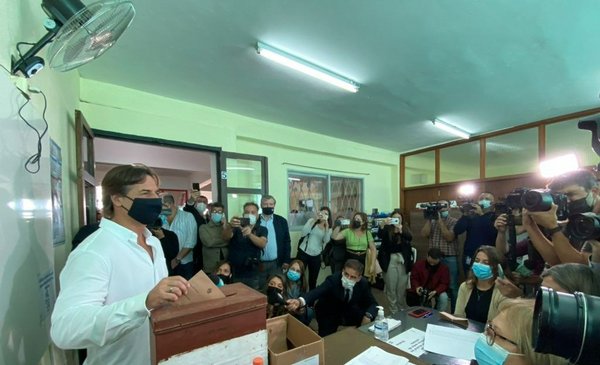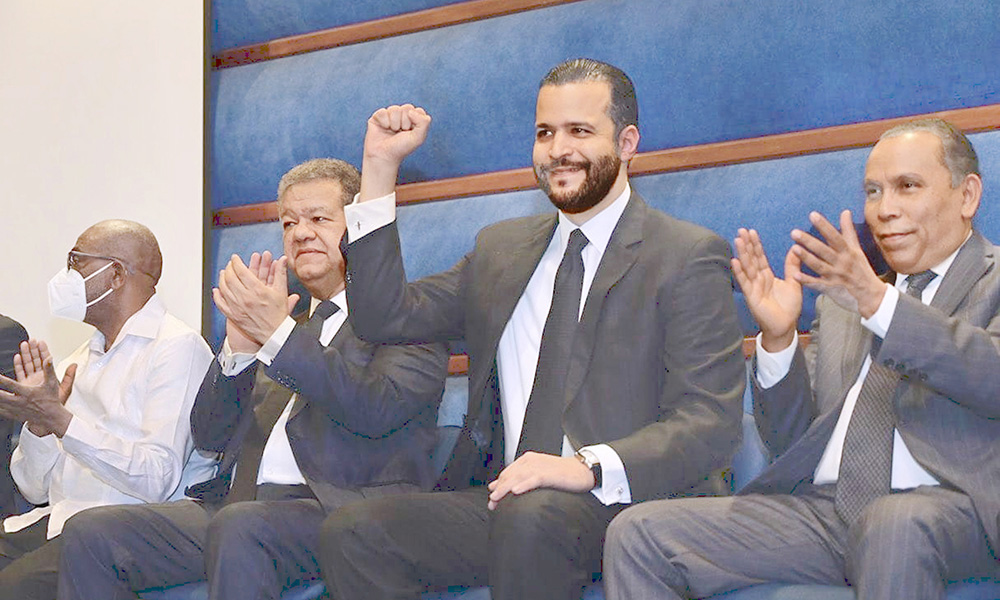Shortly after beginning his third year in office, the administration of Luis Lacalle Pou This Sunday he obtained a victory at the polls that ratifies the support for his administration and maintains practically unchanged the support of the electorate regarding the ballot that in November 2019 led him to the election. Presidency of the Republic.
Primary screening data confirmed what was perhaps the most expected scenario according to what the public opinion polls insinuated in the previous one: a great parity between the two political blocs that divide the country, with a slight but decisive advantage for the governing coalition.
At 2019 runoffthe formula Lacalle-Argimón obtained 49.98% of the valid votes versus 48.42% of the Martínez-Villar formula and 1.60% of blank votes.
With 96.32% scrutinized, No obtained 49.9% of valid votesthe Yes 48.8% and blank votes were 1.3%. If the primary vote is taken, without counting the observers, the support for Lacalle and his government remain statistically identical, and the opposition bloc grows a few tenths at the cost of the blank vote.
Looked at in terms of mid-term elections –as it always was, broadly speaking– the first of the conclusions is that the clear winner is the governmentwho approaching the halfway point of his mandate – in which he faced a pandemic, international crises and most recently the first war in Europe since the 1990s – did not lose support at the polls.
If the referendum is viewed as a plebiscite on the LUC itself, the result confirms that the citizens’ opinions on this norm are distributed more according to the ballot blocks than those of the parliamentary majorities obtained by the parties that would later make up the multicolor coalition.
That makes sense: the multicolored coalition was completed after the October election, which was the one that determined the correlation of forces in Parliament, with 17 senators and 56 deputies for the National Party, Colorado Party, Open Cabildo, Independent Party and People’s Party. Later, the ballotage supposed a plebiscite between the continuity of the Broad Front or the new coalition of five parties, with a programmatic commitment that included the root of what was the LUC.
Called to give their verdict on this programmatic commitment, the Uruguayans hardly changed their minds between November 24, 2019 and March 27, 2022.
This Sunday’s scenario was so similar to that of the last Sunday of 2019 that included the leader of the Broad Front relativizing the defeat at the polls.
Already advanced the scrutiny, and with a clear trend, the president of the Broad Front Fernando Pereira, president of the Broad Front, remarked that until tonight “nobody” could say “who won”, and that there had been “a technical tie”.
Pereira did not recognize the victory of No and argued that the result was a show of force by the leftwhich showed that the country was divided into almost equal parts, a speech very similar to that of the former Broad Front candidate, Daniel Martínez, on the night in which the Uruguayans put an end to 15 years of Frente Amplio governments.
It is true that the Broad Front had almost the least of all the defeats it could have (it was not equal to winning the light blue ballot in absolute numbers), that it even perhaps recovered ground in some department of the interior (Yes won in Paysandú), that she came out of the discouragement in which her departure from power had sunk her, and also that the new defeat does not condition the race to 2024 too much. But none of this takes away from the fact that The scenario has been one of new important support for the government of Lacalle Pou, such as the October 2019 elections, the 2019 ballot and the 2020 departmental elections, and that gives him oxygen for the remainder of his administration.







